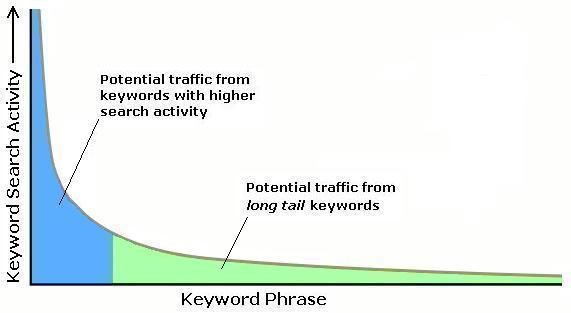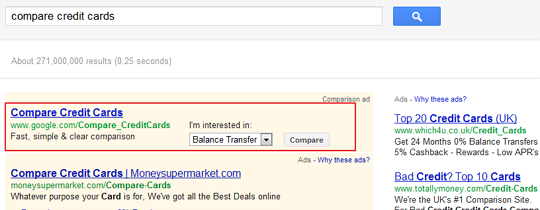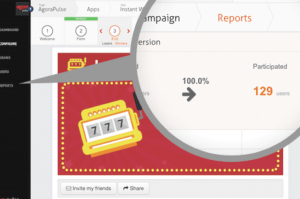Are you ready to be a one-person marketing machine? Whether you’re the lone soldier fighting for your brand to retain brand dominance, a one-person agency fighting for productivity, or somewhere in-between, this guide of PPC hacks for entrepreneurs and very small businesses or marketing teams will turn you into a PPC ninja.

1. Leverage Long-Tail Keywords
Long-tail is an online marketing term for more specialized queries and keywords. The idea behind them is the user who types in “wedding cake boston” is more likely to pick up the phone or engage with your contact form, than the user typing in “wedding cake” (assuming your shop is in Boston, that is!). Ironically enough, the more specialized the search term the lower the bid will likely be. Larger companies with big pockets bid aggressively on generic terms, making the high impressions they command all but exclusive. To effectively compete, ensure there’s a healthy mix of long-tail keywords in your ad groups.

2. Save Time with Proximity Targeting
AdWords is a robust tool, with nearly limitless targeting and segmentation possibilities, and it can become time-consuming to create a campaign that includes all the locations where you do business. Proximity targeting allows for ads to be targeted to a general radius, points of interest (airports, malls, and other hubs of transactional users), just as easily as specific cities. Since location is set across all ad groups at the campaign level, this useful tool will allow your campaign to harness that extra level of segmentation without the time-draining process of typing locations in each time.
3. Manage Your Match Types
In the hunt for clicks, it can be extremely tempting to go with a broad match strategy, which means Google will bring up an ad every time a search query could correspond to the ad. The problem with broad keywords is they tend to leave a lot of money on the table, because the daily budget gets used up before it can reach enough prospects.
Try using a tiered bidding structure where you leverage the laser focus of exact match and the flexibility of phrase match and modified broad. Simply enclose your keywords in brackets for exact match, quotes for phrase match, or add a plus sign for modified broad. (More on using the different match types here.) While optimizing for clicks will help in this ad group test, it is vital exact match gets the highest bid. Odds are the exact match keyword is in your ad text, which increases Quality Score. This means you not only ensure you’re increasing ad rank, but you might also end up paying less for users who more likely to transact.
4. Extend Your Presence on the SERP with Extensions
PPC is as much art as it is science, and it can be tough to know which efforts are helping. Extensions are always helpful, improve ad rank, and take very little time to set up. Extensions allow your text ad to feature the location, phone number, social presence, and other key information about your business. Extensions also cost nothing to add to a campaign and allow the advertiser to get extra real estate on the SERP (search results page).

The other benefit to adding extensions is that they encourages organic growth and engagement in a business’s other online marketing channels. Sharing social success (such as a +1 or review) engages more customers and brand advocates, which in turn increases the social presence of your business.
5. Plug into PPC Software
One of the reasons Larry Kim created WordStream was to free up his day from the never-ending time traps that go along with a robust PPC campaign. PPC software facilitates many of the more tedious aspects of successful PPC campaigns – learning which keywords and keyword types make the most sense for your business, bringing in suggestions for performance in ad groups, as well as allowing for ad edit suggestions. Much like you need to spend at least 20 minutes on cardio to get your metabolism going, WordStream segments suggestions into a 20 Minute Work Week that ensures your campaign gets the biggest impact with the least amount of time invested.
6. Secure Success with SEO Tools
Just because you’re becoming a PPC ninja doesn’t mean SEO tools like Moz, SEMrush, and Raven Tools can’t benefit you. While PPC doesn’t influence organic page rank, the additional traffic and branding turns the two campaign types into symbiotic partners rather than cannibalizing money/time. Having these tools at your disposal will give you a far more objective view into the overall success of your online presence, as well as give you ideas to enrich your campaigns. (The reverse is true too – you can use AdWords data to help your SEO.)
SEMRush in particular is extremely useful in that it gives an extensive breakdown of websites with similar keywords, as well as keyword suggestions. When planning a display campaign to run alongside your PPC campaign, SEMRush offers a one stop shop on a freemium basis.
What are the tricks that get you through your day? Let us know in the comments!
Business & Finance Articles on Business 2 Community
(344)






